Khun Manit took a stand against the human trafficking that was taking place through his district north of Phuket.
He knew it was happening and he knew it was wrong, so he did what he could to stop it happening for the sake of Thailand.
The 56-year-old regional administrator tried something new by apprehending groups of boatpeople in his district - something usually only the police do, with local help.
Then he gathered together a bunch of like-minded volunteers to interview the boatpeople individually to assess to international standards whether they were human trafficking victims.
What Khun Manit did was to break the nexus between laziness and greed that had spread human trafficking and made it a cottage industry in the provinces north of Phuket, and along the border to the south with Malaysia.
Back in November, he explained to Phuketwan the reasons for his actions: ''We want to end the horrors of the trade in humans along the coast of Thailand. This can't go on.
''There is no point in Thailand pretending that what is happening is not happening. I hope that other district chiefs will join this fight to save Thailand's reputation.''
And so an uprising began, a community revolt that set the district chief and his varied group of supporters against the status quo, and especially local police.
For years, police had designated almost all arrivals along the Andaman Sea coast as illegal immigrants, meaning they could be trucked off back to the border with Burma immediately - and delivered again to human traffickers.
On January 1, 2013, Phuketwan reported that for the first time, substantial numbers of women and children were joining male boatpeople in fleeing persecution in Burma.
That particular boatload of families was trucked off to the border - and back into the hands of human traffickers - within a few days.
But the development of Rohingya families arriving in Thailand led to the roundup of about 2000 boatpeople, both from the sea and from secret jungle camps.
About 1000 of those people were rounded up with help from Khun Manit's team then processed as illegal migrants.
''Everybody just kept saying 'they are illegal immigrants,'' Khun Manit said. ''I didn't understand until this year that many of them were stateless and being forced to flee Burma, until it was explained to me.''
Awareness of what was happening led Khun Manit this year to make a stand, and to point out the nightmare of people who were being driven from their homeland being sold and bought like cattle in Thailand.
As Andaman coast Muslim residents pointed out to us, ''all the drug dealers are now switching to the people trade because it's far more lucrative and nobody ever gets punished for it.''
In effect, many saw it as doing a good deed. Back in 2009 after Phuketwan, the South China Morning Post and CNN exposed the inhumane ''pushbacks'' of boatpeople from Thailand, the replacement ''help on'' policy was put into effect.
Under the new policy, the Royal Thai Navy and other naval forces would intercept boats at sea and ''help on'' the human cargo to its destination, providing water, food and assistance on condition the boat did not land in Thailand.
On land, the ''help on'' policy took a different form, with locals often assisting boatpeople to move south by delivering them into the hands of traffickers, for a fee.
By September 2014 when Khun Manit decided to act, trafficking people through Thailand to Malaysia had become such a prosperous, untainted industry that touts in Bangladesh were enticing and recruiting poor workers to join the voyage to paradise in Malaysia just to keep the money flowing.
On the road south towards Phuket through the provinces of Ranong and Phang Nga, near Takuapa, there's a 24-hour checkpoint set up by Khun Manit to dissuade both human traffickers and drug smugglers. Mobile teams pursue traffickers if necessary.
The mid-year downgrading of Thailand to Tier 3 in the US State Department's Trafficking in Persons report certainly gave the country's military government good reason to try to end the trafficking.
But it is this year's uprising by Khun Manit and others that sends the clear message that reforms have to be genuine, not just based on a desire to pretend to the world that nothing seriously wrong is happening.
Other district chiefs and police are coming to understand what's really going on and now share the Takuapa district chief's approach.
For his stance against human trafficking in Thailand, Khun Manit is Phuketwan Person of the Year for 2014.
British singer Rihanna and former Tourism and Sport Minister Somsak Pureesrisak shared the 2013 award - Rihanna because she made an issue on social media of the treatment of slow lorises and Patong's appalling ping-pong shows, Khun Somsak because he acted to correct Phuket problems, as raised by Europe's ambassadors.

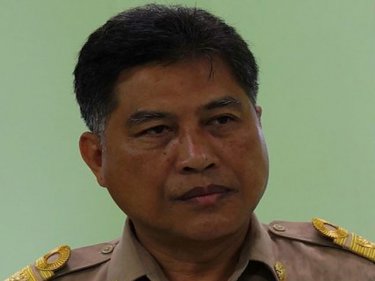




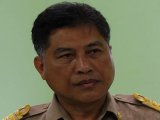
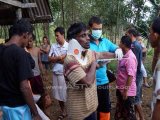


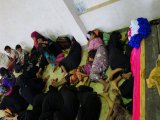
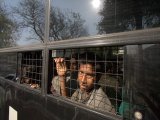

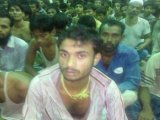
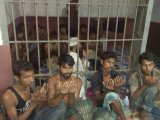



I heartily second this choice. Great stuff Khun Manit.
(And best wishes for 2015 to all at Phuketwan.)
Posted by ssresident on January 1, 2015 12:10
Editor Comment:
Thank you.